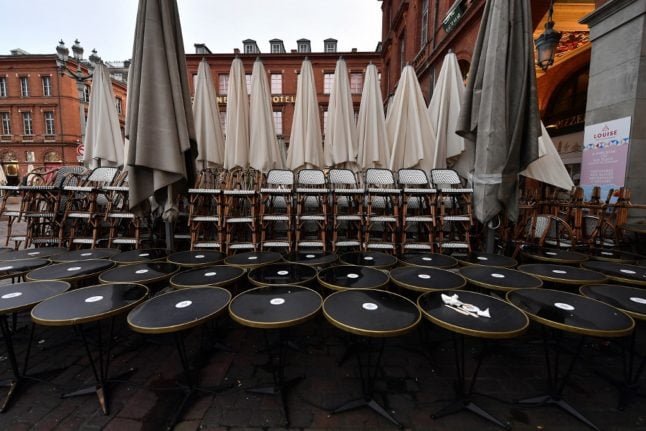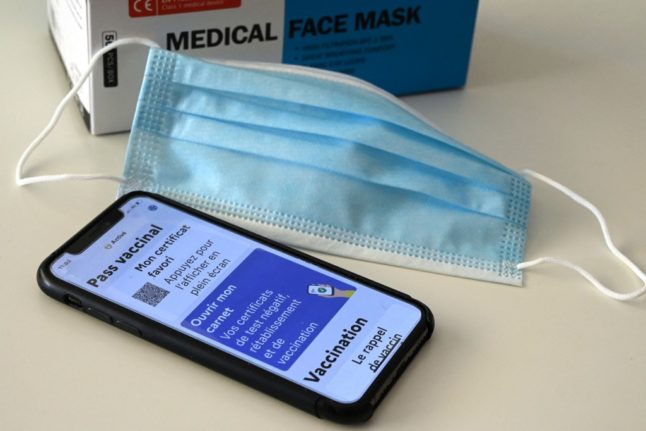When?
Don’t get too excited, the reopening is not imminent. In fact certain areas of France are currently facing more restrictions as the health situation worsens.
But even in areas where Covid numbers are low, there is no immediate plan to loosen restrictions such as the 6pm curfew and the closure of bars.
Health Minister Olivier Véran bluntly told the French parliament this week: “We know that for another four to six weeks, whatever happens, we won’t lower the level of restrictions in France.”
The government spokesman Gabriel Attal also spoke of starting to return to a normal life “from mid April”.
No plan for reopening has been released but it is widely expected that cultural venues such as museums and galleries will reopen first, while the culture minister has planned three ‘experimental concerts’ in late March and early April under strict health conditions.
How?
The government has set up a ministerial committee whose role is to examine how France can reopen, once the health situation permits.
This committee has been consulting with representatives from the hospitality industry, who will meet with Prime Minister Jean Castex on Friday.
As well as methods for reopening, there will also be discussion on financial support for hospitality businesses once they reopen, as extra rules will in most cases lead to lower customer numbers.
Here are some of the ideas put forward:
Health pass – the idea of ‘vaccine passports’ for access to travel or leisure has proved quite controversial in France, especially as so many people are still waiting for an appointment for their Covid vaccines. While this is not expected to be introduced for access to bars and restaurants at this stage, President Emmanuel Macron has floated the idea of a pass sanitaire (health pass) for access to certain places.
This pass as outlined by transport minister Jean-Baptiste Djebbari could be an app on which people can upload recent negative Covid tests and fill out forms similar to the curfew attestation to declare that they have no Covid symptoms.
On the idea of making access conditional on being vaccinated, Macron clarified: “If we manage to reopen some places, we can not make their access conditional on vaccination, as we would not even have opened vaccination to the youngest groups”.
QR codes – Each establishment would have its own QR code that customers would have to scan with a smartphone as they entered. This information would be linked to the TousAntiCovid app, which could then alert anyone who had been in the same bar or restaurant if a positive case was reported. This is reportedly popular with bar owners as it does not involve their staff, but obviously excludes people who do not own a smartphone.
Name and contact number checks – the less hi-tech version of the QR code is taking the name and contact details of every customer as they enter, to allow for contact tracing in the event of a positive case, however representatives of the industry are said to be hostile to the idea of their staff having to make these checks.
Lunch only – also proposed is a gradual reopening, initially during the daytime only. This eliminates issues with the 6pm curfew, but would require a more extensive support package for restaurants and cafés only able to offer a lunchtime service.
Regional reopening – local leaders in areas like Brittany, where case numbers are low, are understood to be pushing for a reopening in low-risk areas. However there are concerns that this would encourage people to travel from high-risk zones, thus spreading the virus.
Six person limit – when bars and restaurants were briefly open over the summer, there were a host of restrictions in place including mandatory 2-metre gaps between tables and limits of six people per table.
Hospitality businesses say they would still need financial support to cope with these measures, as it drastically limits how many customers they can accept, particularly in cities like Paris, where in normal times tables are crammed together in small spaces in cafés and on terraces.
Terraces only – the reopening of cafés in early summer 2020 began with outdoor spaces only and cities including Paris passed emergency legislation to allow cafés and bars to expand their outdoor terrace areas, in some place completely pedestrianising streets to allow this.



 Please whitelist us to continue reading.
Please whitelist us to continue reading.
Member comments